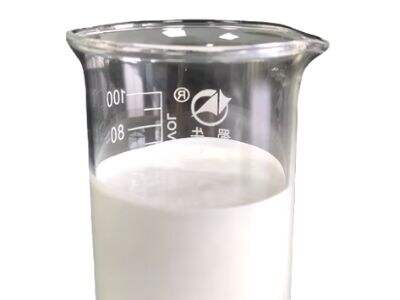आमच्या वनस्पतींच्या नष्टकारी कीटांपासून बचवण्यासाठी, आम्ही दोन प्रकारच्या कीटनाशकांमध्ये निवडू शकतो - जादूतेच असलेले किंवा रासायनिक कीटनाशक. त्या प्रत्येक प्रकाराचे आपल्याला स्वातंत्र्य आहे. म्हणजे तुम्हाला जाणून घेणे गरजेचे आहे की कोणते तुमच्या वनस्पतीला बेहतर असेल, आणि की ते तुमच्या विशिष्ट स्थितीसाठी काम करतात की नाही.
प्राकृतिक कीटनाशक
प्राकृतिक कीटनाशक हे यादील घटकांपासून बनवले जातात जे कीट वाढ प्रबंधक चिंचडे प्रकृतीबद्दल प्राप्त केले जातात. सामान्य प्राकृतिक कीटनाशक हे नीम तेल, लहळ, साबुन आणि मिरची पावडर आहेत. त्यामुळे प्राकृतिक कीटनाशकांच्या वापराचा एक फायदा हा आहे की ते पर्यावरणशैली आहेत. ते मधुमागे आणि लेडीबग्स यांसारख्या उपयुक्त कुत्र्यांच्या खातीर कोणतीही चांगली नाही, जे आमच्या उद्यानांसाठी महत्त्वपूर्ण आहेत. परंतु, यांचे घटक प्राकृतिक असल्यामुळे, ते रासायनिक कीटनाशकांपेक्षा अप्रभावी किंवा कमी शक्तिशाली असू शकतात. काही वेळा, व्यक्तीला त्यांचा वापर अनेकदा करावा लागतो पूर्वीच्या इच्छित परिणाम मिळून आला.
रासायनिक कीटनाशक
मागीलप्रकारे, रासायनिक कीटनाशक लॅबरेटरीत संश्लेषित केल्या जाणार्या पदार्थांच्या उत्पादनापासून आले जातात. यांचा insecticida malathion कीटनाशक हे कीटांवर चटकून आणि प्रभावीपणे काम करण्यासाठी बनवले जातात. ते सामान्यतः फारसे मोठ्या कीट प्रसारणांचा सामना करू शकतात आणि त्यांना चटकून विनाश करतात. परंतु, रासायनिक कीटनाशकांचा वापर केल्यावर काही जोखीम असतात. ते त्यांना मदत करणारे फायदेदायी कीटही चालक करू शकतात आणि खरूपणाने वापरल्यास, ते तुमच्या वनस्पतीला पण नुकसान पडवू शकतात.
रासायनिक कीटनाशकांचा निर्धिष्टपणे नाही वापर किंवा बार-बार वापर करणे खूप जास्त तर्कित समस्या तयार करू शकते. जर तुम्ही दीर्घकालापासून हे रासायनिक उत्पाद वापरत राहाल, तर अभ्यासांनुसार ते वनस्पतींना पोषण सांगणारे मिट्टी खराब करू शकतात. हे नुकसान वनस्पतीच्या वाढीला खराब पडवू शकते आणि फळ आणि फुलांची उत्पादनशीलतेला पण प्रभावित करू शकते. अशा प्रमाणे, हे विषार्पण आसपासच्या पाण्याची भीती पैदा करू शकते, जे त्या क्षेत्रातील पशूंप्रमाणे इतर जीवनांना खोटी पडवू शकते.
घेऊन विचार करावे यांचे कारक
जर तुम्हाला रसायनांचा वापर करण्यास अभ्यस्त आहे तर, तुमच्या मनात प्रश्न उदय पडला असेल: प्राकृतिक किंवा रसायनिक कीटनाशक? यासाठी, काही घटकांचा विचार करावा:
कीट समस्या किती गंभीर आहे? जर कीट तुमच्या वनस्पतींवर फार नुकसान करीत आहेत, तर तुम्हाला रसायनिक कीटनाशक सारखी मोठी समाधान आवश्यक असू शकते. परंतु जर तुम्ही कीटांची उपस्थिती जलद ओळखू शकता आणि जलद काम करता, तर प्राकृतिक कीटनाशक उपयुक्त होऊ शकते.
तुम्हाला कोणत्या प्रकारची वनस्पती आहे? काही वनस्पतींना रसायनिक कीटनाशकांवर इतकी वाटत नाही. जर तुम्हाला तुमची वनस्पती कसे प्रतिसाद देणार आहे हे अजून अस्पष्ट आहे, तर तुम्हाला पहिल्यांदाच त्याच्या लहान भागावर कीटनाशक प्रयोग करावा चांगले. त्याने आउटडॉअर इन्सेक्ट किलर तुम्हाला त्याचा प्रतिसाद पाहून घेऊ शकता आणि पूर्ण वनस्पतीचे खोट न करता.
सामान्य दिवसातील काळ, आपण वातावरणाबद्दल सोडून देत नाहीत? जर आपण इंसेक्टिसाइडच्या वातावरणावरील प्रभावांबद्दल चिंतित असाल तर आपण प्राकृतिक समाधानाशी जाण्याचा विचार करू शकता. परंतु यादृक्ष यावेळीही यादृक्ष प्राकृतिक इंसेक्टिसाइड अवघटीत वापरल्यास किंवा खूप वेळा वापरल्यास समस्याकारक बनू शकतात.
प्राकृतिक मार्गाने प्रजांचा नाश करणे
जर आपण प्राकृतिक इंसेक्टिसाइड मार्गाने जाण्याचा निर्णय घेत असाल तर येथे सामान्य उपहारांच्या प्रजांसाठी कारगार विचार आहेत:
Aphids: ह्या लहान बग अधिकांश वनस्पतींसाठी समस्या आहेत. आपण आपल्या वनस्पतींवर पाणी आणि डिश साबनच्या मिश्रणाने स्प्रे करून त्यांना मारू शकता. ह्या मिश्रणाने aphidsचा श्वास बंद होतो. आपण त्याच पासून लहान लहान garlic, chives किंवा onions वाढवू शकता, कारण ह्या वनस्पती Aphidsच्या प्रवेशावर अडचणी तयार करू शकतात.
कॅटरपिलर: कॅटरपिलर फुलांवर व डालांवर खूप परेशानी तोडणारे होते. आपण त्यांना आपल्या पंजांनी टाकून काढू शकता, जे काही थोडे समयग्राही असू शकते परंतु चांगले परिणाम देते. इतर विकल्प म्हणजे बँकर बॅक्टीरियम थरुंगिएन्सिस (Bt) वापरा. हे बँकर पायदानांसाठी असहज आहे आणि जेव्हा ते ते खातात तेव्हा त्यांचा वध करते.
स्लग — स्नेल्स यांसारखे स्लग आपल्या पायदानांचा नुकसान करू शकतात. त्यांना दूर करण्यासाठी आपण आपल्या पायदानांच्या आधारावर कॉपर टेप वापरू शकता. कॉपर थोडे शॉक देते आणि त्यांना जाण्याची इच्छा नसावी लावते. आपण दियातील पावडर दियातील पृथ्वी असलेली सामग्री वापरू शकता, ज्यामुळे जर ते त्यांच्या मार्गावर पडतील तर त्यांच्या नरम शरीरांना काटू शकते.
रासायनिक कीटनाशकांचा पर्यावरणावरील प्रभाव
रसायनिक कीटनाशक आपल्या वातावरणावर कशाप्रकारे परिणाम देऊ शकतात हे माहित ठेवणे खूप संबंधित विषय आहे. या पदार्थांची जमीन, पाणी आणि हवावर जमीवारी होऊ शकते, ज्यामुळे जंगली प्राणी आणि प्रकृतीच्या संतुलनाला नकारात्मक परिणाम होऊ शकतात. इतर रसायनिक कीटनाशक — उदाहरणार्थ नियोनिकोटिनॉइड्स — अपिची जातीच्या कमीत भूमिका बजावल्या जात आहे. अपिचे आमच्या फळांमध्ये, साखरांमध्ये आणि अक्षांमध्ये प्रमुख प्रसारक आहेत, त्यामुळे आमच्या भोजन प्रणालीच्या सफलतेसाठी त्यांच्या स्वास्थ्याचा ध्यान घेणे गरजेचे आहे.
त्यामुळे, जर आपण आपल्या वनस्पतींवर या कीटांच्या प्रभावांचा सामना करण्यासाठी रसायनिक कीटनाशक वापरत आहात, तर ते थोडे वापरा आणि केवळ जरूरी असल्यास वापरा, कारण ते वातावरणावर नुकसान काढू शकतात. नियमितपणे, खरेदी करताना आपल्याला दिलेल्या उत्पादन-विशिष्ट सांकेतिक दिशानुसार काम करावे. कीटनाशकांच्या वापरानंतर, अगदी उत्पादनाच्या अवशिष्ट भागांची योग्य प्रकारे निर्मूलन करा त्यामुळे ते वातावरणाला खतरा न काढे.

 EN
EN
 AR
AR
 BG
BG
 HR
HR
 FR
FR
 DE
DE
 EL
EL
 HI
HI
 IT
IT
 JA
JA
 KO
KO
 PT
PT
 RU
RU
 ES
ES
 TL
TL
 ID
ID
 VI
VI
 TH
TH
 AF
AF
 MS
MS
 SW
SW
 UR
UR
 BN
BN
 CEB
CEB
 GU
GU
 HA
HA
 IG
IG
 KN
KN
 LO
LO
 MR
MR
 SO
SO
 TE
TE
 YO
YO
 ZU
ZU
 ML
ML
 ST
ST
 PS
PS
 SN
SN
 SD
SD
 XH
XH

